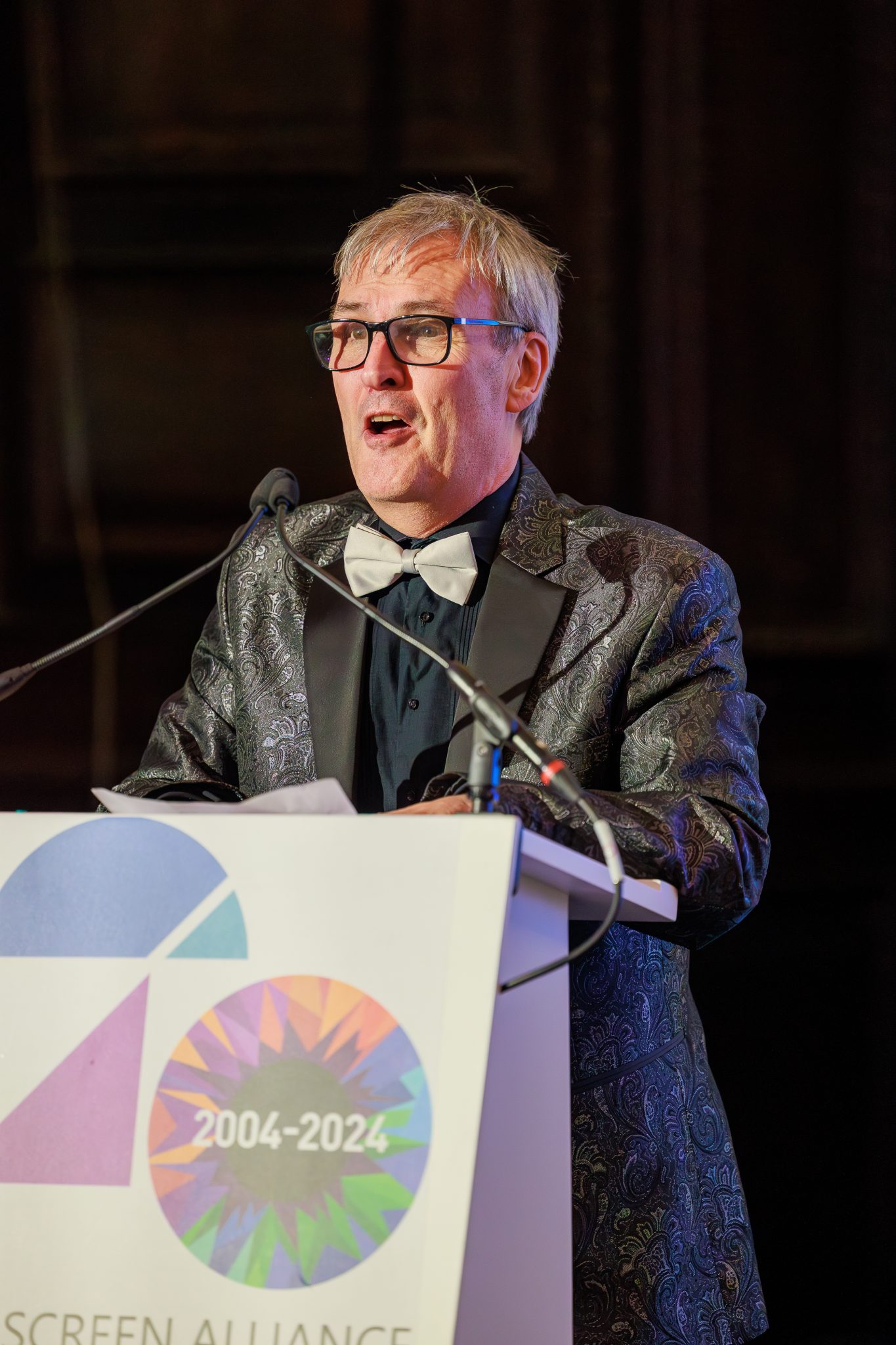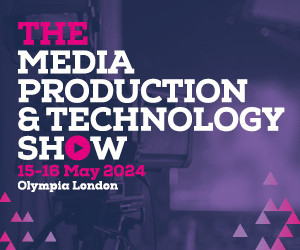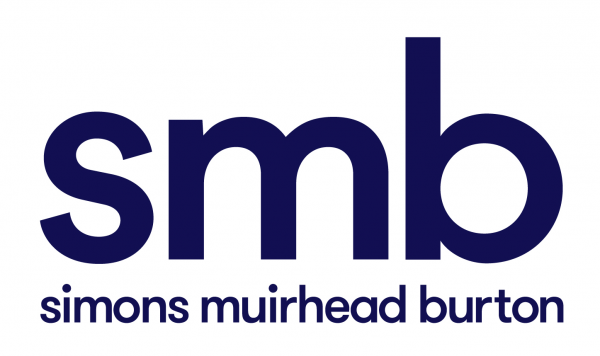In a keynote speech, Neil Hatton, CEO of UK Screen Alliance, reflected on the organisation’s history and turned towards the future, laying out their response to the Government’s consultation on visual effects. The below speech was delivered at the UK Screen Alliance 20th anniversary gala dinner, held at Stationers’ Hall in London on 25 April 2024.

Good evening.
Not quite 20 years ago today, but close enough. The actual date was 4th March 2004, when we held our first open meeting for prospective members at BAFTA, for what was then known as UK Post.
I was part of the steering committee tasked with getting it going. And as the owner of a small insignificant editing boutique, I felt significant imposter syndrome when sitting alongside the likes of William Sargent, Alex Hope, David Jeffers, Nicky Sargent and our first chairman, the founder of MPC, the formidable Mike Luckwell.
Some of you here tonight, were present at that first event, like Nick Long from Salon, one of our longest standing members. Salon, the sponsors of tonight’s champagne reception, are also celebrating an anniversary this year; their 50th. So, join me in congratulating them.
We are also celebrating Animation UK. 14 years since they set up; 11 years of the Animation Tax credit, and 7 years since we came together to form the UK Screen Alliance, as we know it today. Please join me in thanking Kate O’Connor, who does sterling work on advocacy and promotion for the animation industry.
Thank you also to our board of directors, our councils and our working groups, both past and present, for their wisdom and insight.
And a big thanks to my team, Audrey and Ruxandra, who keep the wheels turning and have worked hard to bring tonight’s event together.
We really appreciate the kind words of the members who appeared on the video that you have just seen. A version with just the testimonials is now on our websites. We just could not do what we do, without the ongoing commitment our members. We just wouldn’t be able to operate at the level of intensity required to make a difference, without your moral and financial support. And we thank you for both.
For our awards tonight, big thanks go to our independent panel of judges who created the shortlists from your nominations and decided the overall winners.
I have already mentioned Salon, but sponsoring our awards are Tysers, Simons Muirhead Burton, Lucid Link and Percy and Warren. We couldn’t have put on this event without you.
And thank you all for supporting our anniversary event and allowing us to celebrate the outstanding achievement of tonight’s nominees and winners.
Much has changed over the last 20 years. Back in 2004, there were no photos taken of our first event – it was before phones had cameras; but they did have a decent battery life!
In 2004, the first ever series of Strictly Come Dancing was on the telly. If you saw it, you would have been watching in standard definition, as no UK broadcaster was transmitting HD at the time.
The kit to produce HD existed. At the NAB show in Las Vegas that year, pride of place on the Sony stand would have been HDCAM SR. The ultimate video recorder from the era of tape, eclipsed within a decade by file delivery.
In 2004, only half of UK households had internet access and the majority of those were still on dial-up. Remember the chirps and everyone moaning that you were blocking the phone line?
“The Facebook”, as it was called then, was barely 2 months old, and was a network for Harvard students only. Netflix was just a DVD rental business, slugging it out against Blockbuster. They certainly weren’t a global force in content making with Netflix Originals. Distributing films to consumers via dial-up internet just wasn’t a practical.
At that first meeting, we set out our aims. To represent the sector to Government, identify and tackle skills shortages, and market UK facilities on a global landscape. I remember saying, this must not be a job creation scheme for just one person, that of our yet to be appointed, first chief executive, Gaynor Davenport. It must be about creating thousands of jobs.
We supported the campaigns to re-introduce a film tax credit after the ending of sale and leaseback, and were involved in the TV Coalition to extend tax relief to High End TV. These were instrumental in the spectacular growth of the TV and Film industry. And now our own campaigns to get better tax relief for VFX and animation promise to create those many thousands of jobs, we hoped for at the outset.
We’ve grown in stature as an organisation. So often, digital production, post, VFX and animation, has been overshadowed by physical production, but we are now present at every high-level table, reminding the decision makers that we are just as important. That’s our role as your advocates; to be omnipresent, to make that presence felt, and create pressure for positive change.
My eight years at the helm of UK Screen Alliance have seen turbulent times for the UK and the world. We’ve been here to support you through Brexit, Covid, Strikes, an unprecedented boom and now sadly, a global production slowdown.
The last 12 months have been bittersweet. We know it is tough out there, and for many, the aim is to “survive to ’25”, but with the breakthroughs in the VFX and animation tax reliefs and the new indie film tax credit, there is new cause for optimism.
I want to highlight the role that DCMS and Lucy Frazer, the Culture Secretary, have played in bringing these initiatives into reality. She has been a big advocate for our sector, in lobbying for our case at Treasury. Our relationship with DCMS has never been better.
But there’s always something new for us to champion. The only constant is change, as it ever was, and we will be here to help you navigate it.
Our twenty years are a mere blink of the eye, compared to the history represented by this magnificent livery hall. I want to draw your attention to the stained glass window at the far end of the room. It depicts William Caxton demonstrating the printing press to Edward IV in the late 1470s. Caxton didn’t invent printing, that was Guttenberg, but he was the first person to introduce a printing press to England and the first English retailer of printed books, with titles like Canterbury Tales.
The Guttenberg printing press has been acknowledged as one of the most significant inventions of renaissance technology, democratizing access to knowledge and promoting literacy right across the known world (the Americas were yet to be discovered). The printing press led to modern day forms of communication such as novels, newspapers, and magazines; comic books, flyers, and billboards.
Five hundred years ago, if you made your living as a scribe, writing manuscripts by hand using a quill pen and ink, the printing press must have seemed, to use a modern phrase, disruptive technology, which threatened their occupation. While calligraphy still survives as a niche art form, printing spawned many new occupations, not just typesetters or booksellers, but creators of new forms of content, like novelists, journalists, or graphic artists. Does this scenario sound familiar? Can you see where I’m going with this?
We are experiencing the same kind of disruption now, from Generative AI, with the perceived threat to jobs. We can’t uninvent AI. We must learn to live with it and adapt. AI tools under the control of creative artists can make us more efficient and remove the drudgery of some roles, allowing more time to experiment with innovative ideas and to attempt new imagery that was just not possible before.
Disincentivizing the use of Generative AI in digital production, by excluding it from the VFX tax credit, as the Treasury have proposed in their current consultation, doesn’t make an sense to me. We would be the only country in the world to have an AI exclusion in their tax credit and that puts the UK at a disadvantage, potentially undoing some of the good that the new enhanced tax credit is meant to achieve. If we don’t embrace Gen AI in VFX, somebody else will. To have one hand tied behind our back, would cost artists’ and technologists’ jobs in the UK, creating new roles elsewhere rather then here, in the way we had hoped.
While the future path of AI is uncertain, such as how fast and how far it will become ubiquitous in our sector, we need to be at the heart of it, not on the sidelines. To quote Abraham Lincoln, “The best way to predict your future is to create it.” We will respond to the Treasury’s consultation and oppose the Generative AI exclusion from the VFX tax credit, backed up by convincing evidence and wide support from industry stakeholders. I’m hopeful that we can make that case.
I’m optimistic for the future of our sector, where human creativity will still be highly valued and central to the content that we output. Where AI opens new possibilities, but is firmly under the control of creative artists.
When UK Screen Alliance in partnership with Animation UK reaches our silver anniversary in five years time, I predict that we will still be celebrating outstanding achievement from creative and committed people, as we are tonight.
May I wish the best of luck to our award nominees later this evening. So now, let’s all eat, drink and be merry and look forward to a bright future.
Thank you.









